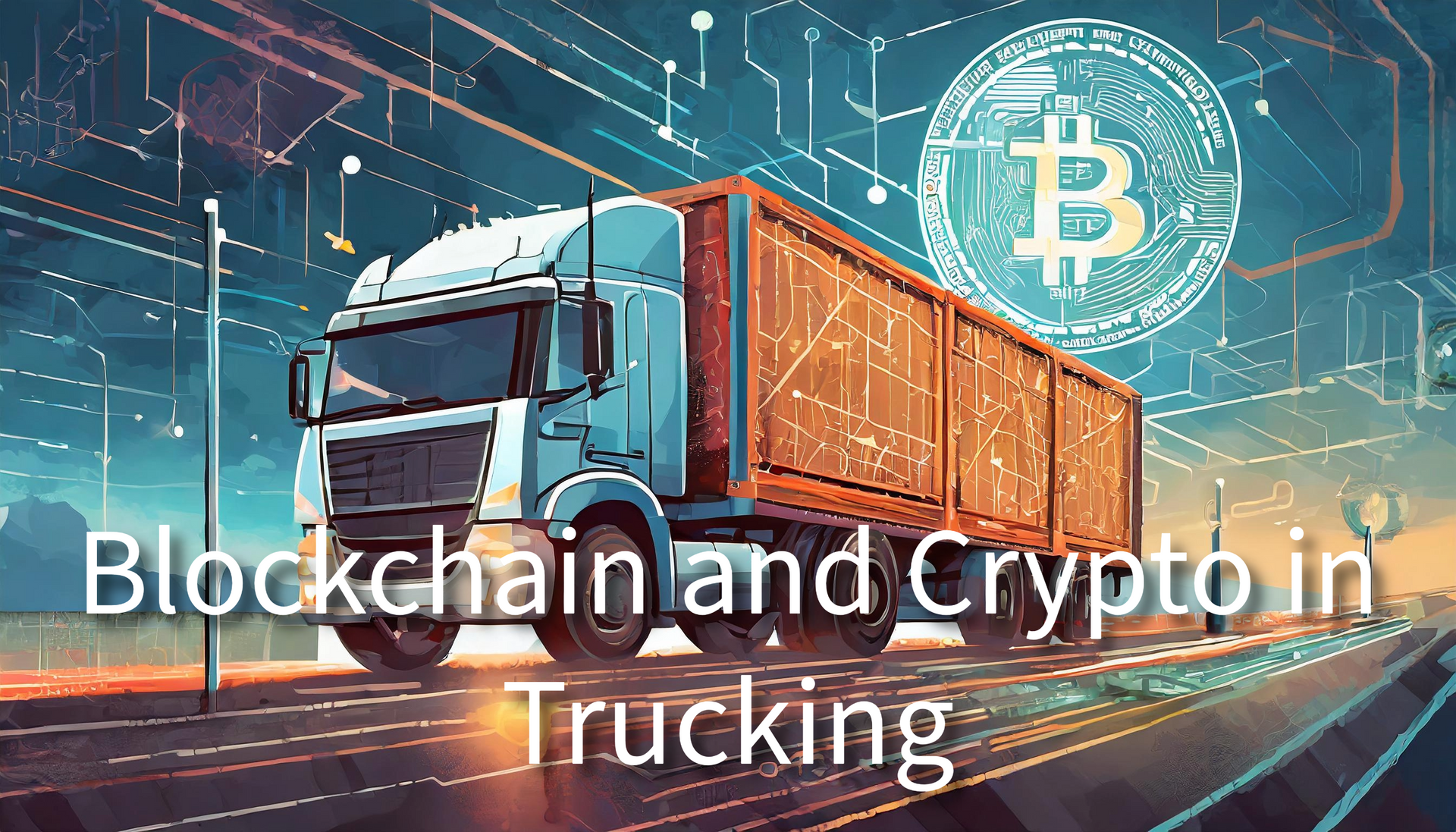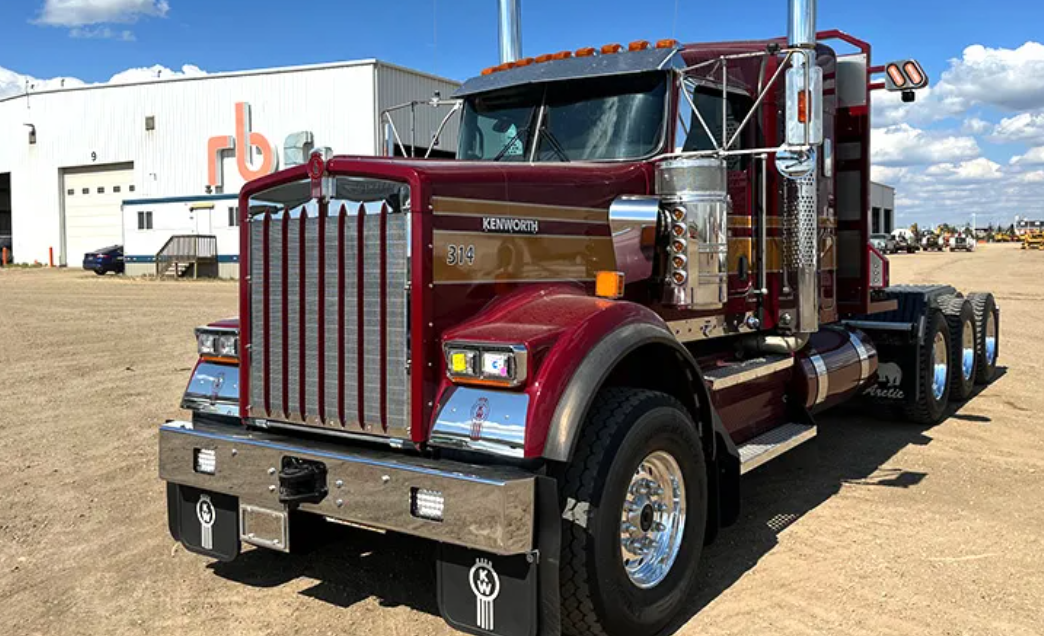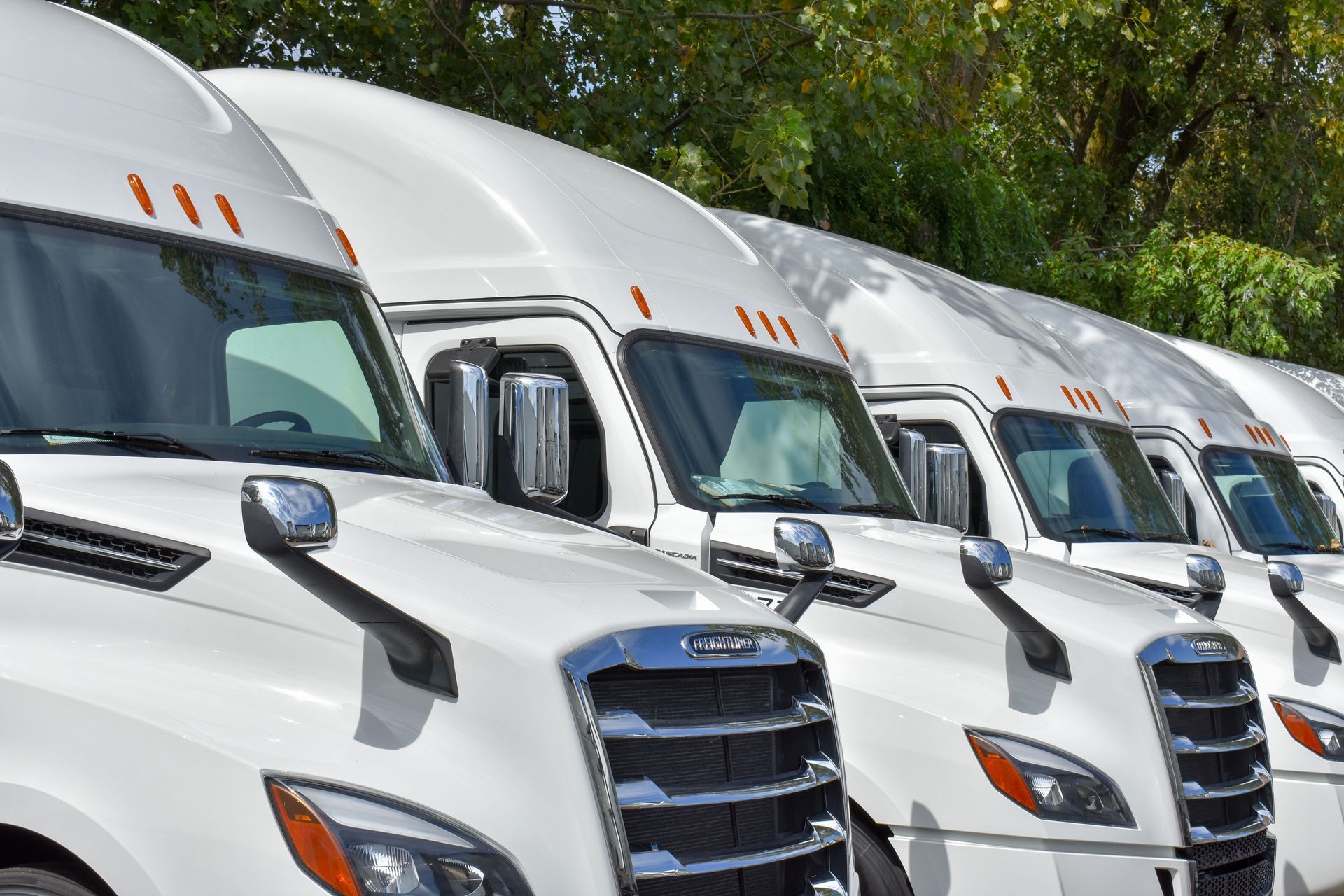Blockchain and Crypto in Trucking
Share this Article:
Transforming the Trucking Industry

The trucking industry, often referred to as the backbone of global commerce, is a vital component of the supply chain, ensuring goods are transported efficiently across vast distances. Despite its critical role, the sector faces numerous inefficiencies, including delayed payments, lack of transparency, and significant administrative overhead. Blockchain and cryptocurrency, two transformative technologies, are now poised to address these challenges, revolutionizing how trucking companies operate and interact.
Understanding Blockchain and Cryptocurrency
To fully grasp how these technologies can impact trucking, it’s important to understand what they are. Blockchain is a decentralized, digital ledger that securely and transparently records transactions. Each entry is immutable, meaning it cannot be altered or deleted, which ensures trust and accountability among stakeholders. Cryptocurrency is a digital currency secured by cryptography, often built on blockchain technology, enabling fast and secure transactions.
When combined, blockchain and cryptocurrency provide solutions to the trucking industry’s most persistent problems, such as payment delays, fraud, and inefficiencies in logistics.
The Challenges in the Trucking Industry
The trucking industry is not without its share of pain points. One of the primary issues is the lack of transparency in transactions. Freight brokers often act as intermediaries between shippers and carriers, which can lead to inflated costs, miscommunication, and disputes over payment terms or delivery conditions. This opacity in operations increases mistrust and reduces efficiency.
Another significant challenge is the inefficiency of payment systems. Carriers and drivers frequently face delays in receiving payments, often waiting weeks for settlements due to the reliance on traditional banking systems. For small operators and independent drivers, these delays can create cash flow problems that threaten their livelihood.
Administrative burdens also weigh heavily on the industry. Trucking companies still rely on paper-based processes to manage bills of lading, invoices, and contracts. These manual workflows are time-consuming, prone to errors, and vulnerable to fraud. Cargo theft and payment disputes further exacerbate these issues, costing the industry billions of dollars annually.
How Blockchain Can Address These Challenges
Blockchain technology offers innovative solutions to many of the trucking industry’s problems. One of its most compelling features is the use of smart contracts—self-executing agreements with the terms of the contract written directly into code. For example, once a delivery is confirmed, the blockchain can automatically verify the transaction and release payment to the carrier. This eliminates intermediaries, reduces delays, and fosters trust between parties.
Real-time tracking is another significant benefit of blockchain. By using a shared, tamper-proof ledger, all stakeholders, including carriers, shippers, and customers, can monitor the movement of goods in real time. This improves accountability, reduces the likelihood of lost shipments, and enhances overall efficiency.
Fraud prevention is an area where blockchain excels. Each transaction recorded on the blockchain is immutable, making it nearly impossible to alter or falsify data. This feature is particularly valuable for tracking the provenance of goods, ensuring their authenticity, and reducing cargo theft.
Additionally, blockchain digitizes and streamlines paperwork, replacing manual processes with a secure and verifiable digital ledger. Bills of lading, proof of delivery, and contracts can be stored on the blockchain, significantly reducing administrative costs and the risk of human error.
The Role of Cryptocurrency in Trucking
While blockchain addresses transparency and operational efficiency, cryptocurrency transforms how financial transactions are conducted in trucking. One of the most significant advantages is the ability to facilitate instant payments. Traditional payment systems often involve multiple intermediaries and lengthy settlement periods. Cryptocurrencies bypass these barriers, enabling drivers and carriers to receive payment immediately upon delivery.
The cost-effectiveness of cryptocurrency is another key benefit. By eliminating the need for banks and payment processors, it reduces transaction fees, especially for cross-border payments where currency conversion and international banking fees can be prohibitive.
Cryptocurrency also enables seamless micropayments, which can be used for expenses like tolls, parking, or fuel. For independent operators, these digital wallets simplify financial management, providing a secure and convenient way to handle expenses on the road.
Real-World Applications in Trucking
The potential of blockchain and cryptocurrency in trucking is already being demonstrated through various real-world applications. Platforms like VeChain use blockchain to enhance supply chain transparency by securely tracking products and verifying their authenticity. Similarly, Fr8 NetworkB decentralizes freight brokerage, connecting shippers and carriers directly to reduce costs and improve efficiency.
Large logistics companies such as Maersk and FedEx are also exploring blockchain technology. Through pilot programs, they aim to improve operational transparency and optimize their supply chain processes.
Overcoming Challenges to Adoption
Despite its promise, the adoption of blockchain and cryptocurrency in trucking is not without hurdles. One of the primary barriers is the cost of implementation. For smaller carriers and independent drivers, the upfront investment required to adopt blockchain systems can be prohibitive.
Regulatory uncertainties surrounding cryptocurrency also present challenges. With varying laws across jurisdictions, businesses may hesitate to fully embrace digital currencies for fear of non-compliance or unforeseen legal repercussions.
Education and training are equally critical. Many professionals in the trucking industry are unfamiliar with blockchain and cryptocurrency and require support to integrate these technologies into their operations. Moreover, scalability remains a concern, as current blockchain networks may struggle to handle the high volume of transactions generated by a global logistics operation.
The Future of Blockchain and Cryptocurrency in Trucking
Despite these challenges, the future of blockchain and cryptocurrency in trucking looks bright. As technology advances, we can expect blockchain systems to become more scalable and cost-effective, making them accessible to businesses of all sizes. Regulatory clarity will also encourage broader adoption of cryptocurrencies, reducing skepticism and fostering trust.
One of the most exciting developments on the horizon is the integration of blockchain with the Internet of Things (IoT). By combining these technologies, trucking companies can enable real-time monitoring of vehicles and cargo conditions, such as temperature and humidity. For instance, IoT sensors can track temperature changes during transit and store this data securely on a blockchain, ensuring compliance with quality standards and delivery schedules.
Final Thoughts on Blockchain
Blockchain and cryptocurrency have the potential to transform the trucking industry, addressing inefficiencies, reducing costs, and fostering trust among stakeholders. By enabling faster payments, enhancing transparency, and streamlining operations, these technologies offer solutions to many of the industry’s most pressing challenges.
While there are hurdles to overcome, the benefits of blockchain and cryptocurrency far outweigh the drawbacks. Trucking companies that embrace these innovations will not only improve their operations but also position themselves as leaders in an increasingly competitive market. The future of trucking is digital, and blockchain and cryptocurrency are at the forefront of this transformation.
Bloom Services, INC
Our drivers average $3,000 plus a week take home pay after all expenses, like fuel, truck rent, etc. If you have Grit, and the endurance to consistently deliver loads and run for at least three weeks at a time, you can take home $150K a year. If you are interested, apply now.



